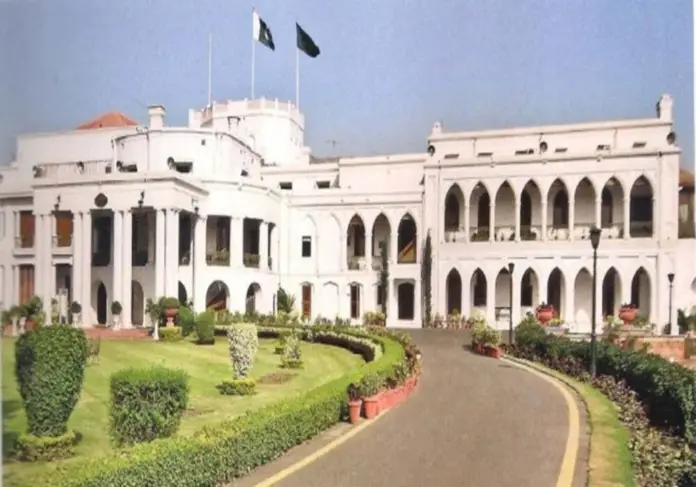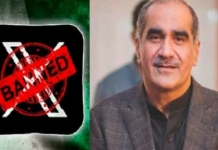Since the change of regime in the country and the largest province, things are not getting clearer on internal, foreign and administrative levels.
A Minute Mirror survey reflected that even after a change in governments in Islamabad and Lahore, shoddy ways were being used to get political and administrative mileage.
A number of officers who had developed a close liaison with the outgoing ruling party the Pakistan Tehreek-i-Insaf (PTI) were allegedly being victimised.
The same was done by the PTI government. It had sidelined all those officers who were close to the Pakistan Muslim League-Nawaz (PML-N) government.
The founder of the nation had reiterated it in his address to the civil servants of Pakistan that they should be loyal to the state. The ground reality tells a different tale altogether. Civil servants have become more loyal to the ruling political parties than to the system and the state.
The result is the colonial institution – which had been the backbone of the state – was on the verge of collapse. Just as there was polarisation in all sectors of society there were groups in bureaucracy as well. The need is to institutionalise it at the earliest.
The policymakers should also think about those honest, upright and hardworking officers who go by the book but are ignored by ruling parties. There should be a constitutional cover and protection for such bureaucrats.
Out of three pillars of the state, only one can sustain, that is the judiciary. The other two are on the downside of the slope. Both the executive and the parliament have lost a lot of what the constitution guaranteed.
If one ruling party victimises the officers who had worked with the other one and vice versa, the system would further crumble. When there is no harmony among the pillars of the state there would be no harmony among people. Since the judiciary and parliament were active players in the game while the executive was a passive one, so the latter has to go for conspiracies. Red-tapism, slow service delivery and above all complicated procedures negatively affect the overall state of affairs.
It is the constitution that protects all sectors and ensures equal representation in the broader prospect.
It was unfortunate that whenever a province-based party comes into power in Islamabad it promotes provincial bureaucrats in the federal government. Dr. Tauqeer Shah, Ahad Khan Cheema, Sumair Syed, Imdadullah Bosal, and barrister Nabeel Awan were some of the officers who were sidelined during the previous government and are in the line to have key positions.
After the 18th amendment in the constitution, the need was to strengthen provinces.
This musical chair game being played to de-motivate and derail the backbone of the state shows that there was no need to uphold the existing system we inherited from colonials let alone reform or replace it with a better one.
The federal cabinet has amended the law on exit control lists by slashing strict conditions. Moreover, there is news that the National Security Committee has also disclosed that there was no foreign conspiracy to topple the Pakistani government.
In another development, the new minister for railways and aviation has also demanded abolishing the National Accountability Bureau. When both the bureau and prosecution fail to convict in court, there would be criticism on them. The need is to review why these anti-graft giants have failed to deliver since they were established. Moreover, it has become a common trend that the favourites of the one government become the most hated for the other one. The PTI came into power with the slogan of accountability and now the new government says that there was no need to continue the NAB.
The governor of Punjab refuses to administer the oath of the newly elected Punjab CM. His principal secretary writes to him and advises that it was his constitutional duty to do so. But the governor writes to the chief secretary to replace his PS. The LHC had to order the president of Pakistan to appoint his representative to take the oath. The advocate general of Punjab announces to challenge the order. The law department bars AGP to represent the provincial matters in courts.
He refuses and stresses to continue till the governor wants. All this shows political immaturity.
Likewise, there was Benazir Income Support Programme. Its former head Sania Nishtar had expelled thousands of beneficiaries she claimed were with the following criteria.
Among those 153,302 people traveled abroad one time, 195,364 spouses traveled abroad once, 10,476 people traveled abroad more than once, 166,319 spouses traveled abroad more than once, 692 people had one or more vehicles registered against their names, 43,746 beneficiaries’ spouses have one or more vehicles registered against their names, 24,546 people paid average monthly phone bill of more than 1000, 115,767 spouses’ average monthly bill was more than 1000 on PTCL or mobile.
Likewise, 666 beneficiaries applied for passports via executive centres, 580 people’s spouses applied for passports via executive centres, and 369,701 beneficiaries applied for their computerized national identity card with executive fees. Likewise, 14,730 officials of government, Railways Post Office or BISP were also the beneficiaries of this program. 127,826 spouses of these government employees were also found beneficiaries of the program.
As per Dr. Sania Nishtar in December 2019, 820,165 people were found who were illegally getting benefits from the support programme. Later in 2021, 29,961 more government employees and taxpayers were found on the list of beneficiaries. Thus, a total sum of 850,126 people – including government officials and senior officers – were grabbing the support money made for those living below the poverty line. Thus, Rs16 billion were saved.
Now, the BISP chairperson Shazia Mari has announced that the names of disqualified beneficiaries by the previous government would be reviewed for inclusion in the list.
The federal government has also replaced the Ehsaas program with Benazir Income Support Program (BISP).
This trend of naming the national institutions after some political leaders should not be promoted. If any institution or a political party wanted to make its head’s name alive forever, they should donate from their own funds, not at the cost of public money.
Moreover, the national institutions should not be named after political party heads or other such figures. If necessary, only those who had gone the extra mile to serve the nation or the country should be promoted like Allama Iqbal, founder of Pakistan Mohammad Ali Jinnah, founder of the atomic program Dr. Qadeer Khan, and esteemed philanthropist Abdul Sattar Edhi.







